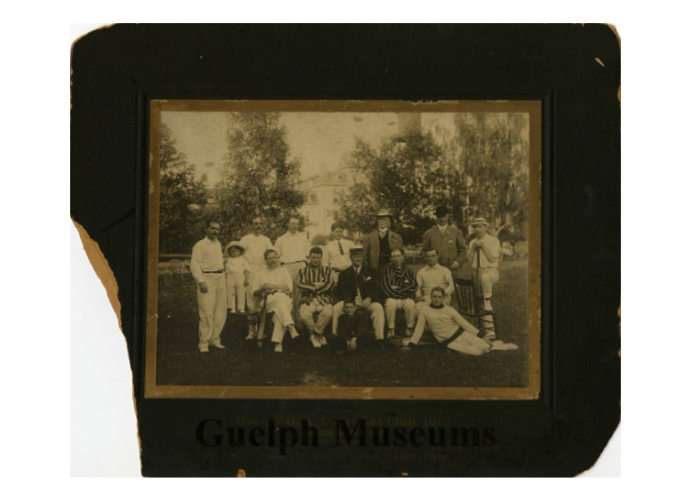The chronicles of our forebears can sometimes give us reason to reflect on our own time.
More than a century ago, Guelph journalist Hereward K. Cockin wrote a weekly newspaper column called Here and There under his pen-name, The Blacksmith. Cockin, who was also a poet, was a keen observer of his world and times. His column covered an eclectic array of topics ranging from such issues as ice on the post office steps and a lack of courtesy on the railway station platform, to the execution of convicted murderers and the earth-shaking political events of his day.
Late in December, 1907, in anticipation of the coming new year, he wrote:
“Heigho! How the passing years whiz along. If it hadn’t been for the good sleighing sent us during the present week it would have been hard to realize that Christmas is close upon us again … As a people we have little to grumble about. Times have been good; we have been spared the ravages of any epidemic; our population has been gradually increasing, and there are no legitimate signs in the heavens that the hey-day of our prosperity has passed … You, reader of this paragraph, may be sad and lonely, but the probability is there are many who are sadder and lonelier than you. We have the hospitals, the Elliott Home, the House of Providence (both homes for the aged), where life and death march closely together, where tears and laughter are very, very near to each other.”
Cockin, a staunch British imperialist, was writing in the latter part of the Edwardian Era, which is perceived today as an age of relative innocence.
For Guelph, comfortably nestled in its corner of the empire, times had indeed been good.
The city’s industrial sector was growing and the railroads carried Wellington County’s agricultural bounty far and wide. Paved streets were replacing dirt roads, and soon electric lights would illuminate the downtown area at night. Its population growth was largely due to immigration. Thanks to the development of vaccines and other advances in medical science, Guelph could boast a declining number of cases of smallpox and other deadly diseases. The quality of care for the sick, the mentally ill and the elderly was, for that period, better than in many other communities.
But even as Guelphites looked forward to a promising new year in what was still a new century, there were, as there are now, longstanding issues and challenges to be dealt with. The people who sweated in Guelph’s factories and foundries were badly underpaid. Women were far from being treated as men’s equals. Bigotry was well-rooted in the social dynamic.
Overcoming those problems would take time and patience, and the efforts of many people whose selfless determination to advance the general good was not only unappreciated by their contemporaries, but also resisted. Men and women who advocated for social reforms were denounced as anarchists, subversives, and – most damning of all – socialists!
Cockin might have seen “no legitimate signs in the heavens” of troubles to come, but disasters were in fact not far over the horizon. Many Guelphites who were still children at the time Cockin wrote his observation would not live to a ripe old age.
In a little over two years King Edward VII, lauded as 'The Peace Maker' for his diplomatic skills, would be dead and the age of innocence over.
Rising tensions among rival nations would explode into the Great War, a cataclysm that would take many Guelph lives. The names of the dead can be seen today on the city’s downtown cenotaph. In the wake of the conflict came the influenza pandemic of 1919, whose ravages kept the gravediggers in Guelph’s cemeteries working overtime.
More than a hundred years later, even though our world is technologically much different from the one Cockin knew, there are nonetheless similarities.
We are also in a relatively new century that holds bright promise. But for most people life and death still march closely together, and tears and laughter are still very close to each other. In spite of great strides, we still have stubborn knots of bigotry and gender inequality to unsnarl. Our society has seen a widening gap between the wealthy and the poor. Around the globe, troublesome hot-spots are potentially explosive.
Most significantly at this time, we are in the grip of a pandemic that has taken thousands of lives and could take more by the time we can distribute an effective vaccine to the general population. That is something each one of us can do something about by participating in simple precautions.
One advantage we have today that the Guelphites of Cockin’s time did not have is hindsight. We can look back at how they handled things. We can learn from their successes and their mistakes.
Our future isn’t determined only by decision makers in high places. It’s in our own hands, too.



